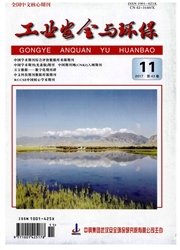

 中文摘要:
中文摘要:
为减少机场安检人员由于疲劳而导致的不安全事件,对其疲劳程度进行测定,评估其疲劳工作的风险。本文结合安检人员岗位特点,修订《安检人员疲劳自评量表》;基于生理学原理,确定机场安检人员疲劳的七项生理指标,得到疲劳自评量表和生理指标测量量表。对安检人员持续工作发生疲劳的可能性进行评估,利用得到的自评量表和生理量表,通过风险矩阵法对安检人员的疲劳风险进行量化分析,得到其疲劳风险指数,并把疲劳风险指数及可能导致的风险和不安全事件对应。最后针对某机场,结合其淡、旺季的实际情况,随机选一名安检人员进行疲劳风险评估,疲劳指数为:淡季R=2,为一般风险;旺季R=8,为较高风险。为进一步缓解机场安检人员疲劳状况提供可靠依据。
 英文摘要:
英文摘要:
In order to reduce unsafe events due to the fatigue of airport security personnel, determination is made to the level of fatigue, assess the risk of their fatigue. Combining with the characteristics of security personnel posts, revision of the security personnel fatigue self-assessment scale. Seven physiological indexes of the fatigue of airport security personnel is determined based on the principle of physiology. Fatigue self-assessment scale and physiological indexes measuring scale is formed. The possibility of fatigue is evaluated after security personnel continue to work. Through the risk matrix method, their risk of fatigue is quantified and the fatigue risk index is derived, using self rating scale and physical scale. Then the fatigue risk index is matched to possible risks and unsafe events. Finally, in combination with the practical situation, the fatigue risk of a security personnel who is selected randomly in the airport is assessed. The index of fatigue R is 2 in the low season, which is the general risk. The index of fatigue R is 8 in the high season, which is higher risk. Reliable basis is provided for further ease the fatigue of airport security personnel.
 同期刊论文项目
同期刊论文项目
 同项目期刊论文
同项目期刊论文
 期刊信息
期刊信息
